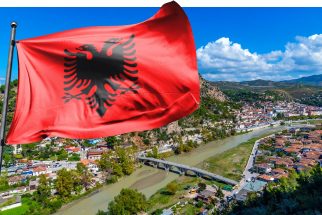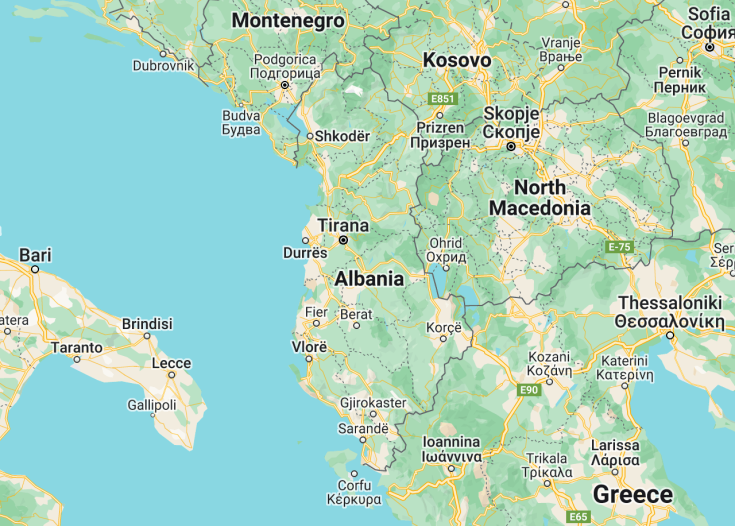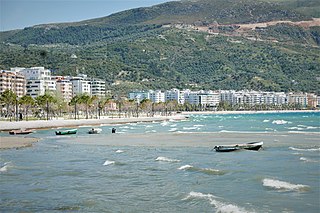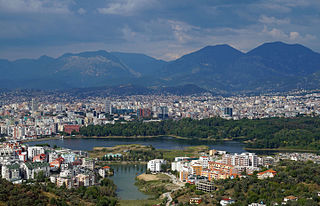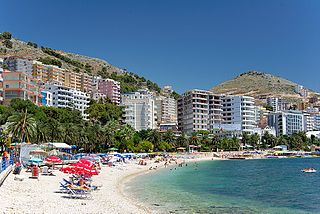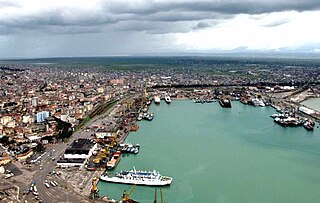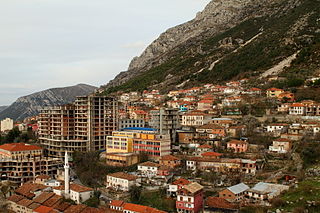Explore the hidden gem of Albania, a country rich in history, stunning landscapes, and vibrant culture. With its charming villages, ancient ruins, and picturesque beaches, Albania offers a unique and unforgettable travel experience. Discover the untouched beauty of the Albanian Alps, wander through the historic city of Berat, or unwind on the tranquil beaches of the Albanian Riviera. Whether you’re an adventure enthusiast, history lover, or simply looking for a relaxing getaway, Albania has something to offer for everyone.
Visit the UNESCO World Heritage site of Butrint, an ancient city with impressive archaeological remains.
Savor the local cuisine and try traditional dishes like byrek, fërgesë, and tavë kosi. Don’t forget to pair your meal with a glass of local wine or the famous Albanian raki.
Albania: Gateway to Natural Beauty and Rich History
| Capital | Tirana |
| Time in Albania | GMT+1 (Central European Time) |
| Language spoken | Albanian |
| Population | 2.8 million (source: World Bank, 2021) |
| Religion | Muslim (58%) Christian Orthodox (6.75%) Roman Catholic (10%) Atheist and Agnostic (2.5%) Other (22.75%) |
| Currency | Lek (L, ALL) |
| Airports | Tirana International Airport Nënë Tereza Kukës International Airport Zayed |
Albania: the hidden gem of the Balkans. With its breathtaking landscapes, rich history, and welcoming people, this small European country has something for every traveler. Nestled between Greece and Montenegro, Albania offers a vibrant blend of stunning natural beauty and a vibrant cultural scene. From the rugged mountains of the Albanian Alps to the pristine beaches of the Adriatic and Ionian coasts, Albania is a paradise for nature enthusiasts and beach lovers. The history of Albania is as captivating as its landscapes. From ancient Illyrian settlements to Roman ruins and Ottoman architecture, the country’s past is a tapestry of different civilizations. Visitors can explore UNESCO World Heritage sites like Butrint, an ancient city dating back to the 7th century BC, or Gjirokastër, a well-preserved Ottoman town known for its cobblestone streets and beautiful architecture. One of the highlights of Albania is its warm and welcoming people. Albanians are known for their hospitality and friendliness, making visitors feel right at home. The local cuisine is a reflection of the country’s diverse cultural influences, blending Mediterranean flavors with traditional Balkan dishes. Don’t miss the opportunity to try local specialties like burek, a savory pastry filled with cheese or meat, or tavë kosi, a delicious baked dish made with lamb and yogurt. Located in the heart of the Balkans, Albania is easily accessible from major European cities. The country’s main international airport, Tirana International Airport Nënë Tereza, offers direct flights to many European destinations. Traveling within Albania is also convenient, with a well-developed network of roads and public transportation. If you’re seeking a destination that combines stunning natural landscapes, rich history, and warm hospitality, look no further than Albania. Whether you’re exploring ancient ruins, lounging on pristine beaches, or hiking in the Albanian Alps, Albania is a destination that will leave you enchanted.
Where is Albania located?
Albania is located in Southeastern Europe, bordered by Greece to the south, Montenegro to the north, Kosovo to the northeast, and Macedonia to the east. It has a coastline along the Adriatic Sea to the west and the Ionian Sea to the southwest.
What is Albania famous for?
Albania is famous for its stunning natural beauty, including the Albanian Alps, pristine beaches, and crystal-clear lakes. The country is also known for its rich history, with ancient ruins, Ottoman architecture, and UNESCO World Heritage sites. Additionally, Albanian cuisine and traditional hospitality are renowned among travelers.
History
The history of Albania dates back to ancient times, with evidence of human settlements in the region as early as the Paleolithic era. The Illyrians, an ancient Indo-European people, inhabited the area in the first millennium BCE. They established several powerful city-states, including the Illyrian Kingdom, which was known for its skilled warriors and defensive fortifications.
(4th century BCE – 2nd century CE) Roman Rule
In 168 BCE, the Roman Republic conquered Illyria, incorporating it into the province of Illyricum. The Romans brought infrastructure, new cities, and Latin culture to the region. One of the most significant Roman cities in Albania was Dyrrhachium (modern-day Durrës), which served as an important port and trading hub.
(4th – 6th centuries) Byzantine Empire
With the decline of the Western Roman Empire, the Byzantine Empire gained control over Albania in the late 4th century. Christianity spread throughout the region, and Byzantine culture influenced the local population. The city of Apollonia became a prominent center of learning and served as a bishopric.
(14th – 20th centuries) Ottoman Rule
In the 14th century, the Ottoman Turks began their conquest of the Balkans, eventually bringing Albania under their control. Ottoman rule lasted for over four centuries and had a profound impact on Albanian society. Many Albanians converted to Islam, and the Ottoman administration implemented a feudal system.
(1912) Independence
On November 28, 1912, Albania declared its independence from the Ottoman Empire, following a series of uprisings and a national assembly held in Vlorë. Ismail Qemali, a prominent Albanian politician, became the country’s first prime minister. However, Albania’s independence was short-lived, as it faced territorial disputes and internal conflicts.
(1944 – 1992) Communist Era
After World War II, Albania fell under communist rule led by Enver Hoxha and the Party of Labour of Albania. Hoxha implemented a Stalinist regime, isolating Albania from the Soviet Union and other communist countries. The country experienced extreme political repression and economic hardship.
(1992 – Present) Democracy and Reforms
Following the fall of communism in 1992, Albania transitioned to a multi-party democracy. The country implemented economic reforms and pursued closer integration with the European Union. However, Albania still faces challenges such as corruption, organized crime, and uneven economic development.
Visit Albania
What to see and do in Albania
Albania offers a diverse range of attractions for visitors to explore. Here are some of the top things to see and do:
-
- Explore the ancient ruins of Butrint, a UNESCO World Heritage site
- Visit the vibrant capital city of Tirana, known for its colorful buildings and bustling markets
- Relax on the stunning beaches of the Albanian Riviera
- Discover the historic city of Berat, known as the “City of a Thousand Windows”
- Hike through the scenic landscapes of the Albanian Alps
- Experience traditional Albanian cuisine, known for its unique flavors and regional specialties
- Learn about Albania’s history and culture at museums and cultural sites throughout the country
Events in Albania
Albania hosts various events throughout the year, offering visitors a chance to experience the country’s vibrant culture. Some notable events include:
-
-
- Tirana International Film Festival (September) – A celebration of international cinema showcasing a diverse selection of films
- Gjirokastër National Folklore Festival (August) – A lively festival featuring traditional music, dancing, and costumes
- Kala Festival (June) – A music festival held in Dhërmi, featuring local and international artists
- Apollonia Arts Festival (July) – A cultural festival held in the ancient city of Apollonia, featuring music, theater, and art exhibitions
-
Best time to visit Albania
The best time to visit Albania is during the spring (April-May) and autumn (September-October) months when the weather is mild and pleasant. This is a great time to explore the country’s natural landscapes and enjoy outdoor activities. The summer months (June-August) are popular for beach visits along the Albanian Riviera, but they can be crowded with tourists. Winter (December-February) offers opportunities for skiing and winter sports in the Albanian Alps.
Is Albania worth visiting?
Albania is definitely worth visiting for travelers looking for a unique and off-the-beaten-path destination. The country offers a rich history, stunning natural landscapes, and a vibrant culture. From ancient ruins to beautiful beaches, there is something for everyone in Albania. However, it should be noted that Albania is still developing its tourism infrastructure, and some areas may lack the amenities found in more established tourist destinations. Travelers should also be aware of certain challenges such as potential transportation difficulties and occasional power outages. Nonetheless, Albania’s beauty and authenticity make it an exciting destination to explore.
Common questions
-
-
- The UNESCO World Heritage site of Berat, known as the “Town of a Thousand Windows” due to its beautiful Ottoman-era houses.
- The ancient city of Butrint, which showcases ruins dating back to ancient Greek, Roman, and Byzantine periods.
- Gjirokastra, another UNESCO World Heritage site, featuring well-preserved Ottoman-style architecture and a historic fortress.
- The vibrant capital city of Tirana, with its colorful buildings, bustling squares, and interesting museums.
- The picturesque Lake Ohrid, shared with North Macedonia, where visitors can enjoy water activities and explore charming lakeside towns.
-
- Fërgesë, a hearty dish made with peppers, tomatoes, and minced meat.
- Tavë Kosi, a delicious baked dish made with lamb, yogurt, and eggs.
- Byrek, a flaky pastry filled with ingredients such as cheese, spinach, or meat.
- Korçë-style mountain tea, a herbal infusion with a distinctive flavor.
- Baklava, a sweet pastry made with layers of phyllo dough, nuts, and honey syrup.
-
- Ksamil Beach, located near Saranda, known for its crystal-clear waters and picturesque islands.
- Dhërmi Beach, famous for its white pebbles and crystal-clear turquoise waters.
- Jalë Beach, a hidden gem with a tranquil atmosphere and stunning views.
- Gjipe Beach, a secluded beach surrounded by impressive cliffs, accessible only by boat or hiking.
- Velipoja Beach, a long sandy beach with shallow waters, perfect for families with children.
-
- Albanian Alps National Park, located in the northern part of the country, featuring majestic mountains, glacial lakes, and picturesque valleys.
- Tomorri National Park, known for its rugged mountains, ancient ruins, and rich biodiversity.
- Llogara National Park, situated along the Llogara Pass, offering breathtaking views of the Adriatic Sea and the Albanian Riviera.
- Butrint National Park, encompassing the archaeological site of Butrint, as well as diverse ecosystems including wetlands and forests.
- Divjaka-Karavasta National Park, home to the largest lagoon in Albania and a wide range of bird species.
-
- Hiking in the Albanian Alps or the National Parks, where you can explore pristine landscapes and enjoy breathtaking views.
- Exploring caves, such as the famous Blue Eye Cave or the ancient Pellumbas Cave.
- Mountain biking, with various trails available across the country for different skill levels.
- Rafting or kayaking in the scenic rivers, such as the Vjosa River or the Osumi Canyons.
- Paragliding, enjoying bird’s-eye views of the Albanian coastline or the mountainous regions.
-
- Buses: Buses are the most common and affordable means of transportation in Albania. They connect various cities and towns, offering regular services.
- Taxis: Taxis are widely available in major cities and can be hailed on the street or booked through mobile apps. It is recommended to negotiate the fare or ask the driver to use the meter.
- Car rentals: Renting a car is a convenient way to explore Albania independently. Several international and local car rental companies operate in the country.
- Trains: While the train network in Albania is limited, there are a few train routes available, mainly connecting major cities.
-
- Gjirokastër National Folklore Festival: This festival celebrates Albanian folklore and traditions, featuring music, dance, and crafts.
- Tirana International Film Festival: A renowned film festival held annually in Tirana, showcasing a wide range of international and national films.
- Tomatina of Fier: Inspired by the famous Spanish Tomatina festival, this event involves a tomato fight and other fun activities.
- Apollonia Festival: Held near Fier, this festival celebrates the ancient Greek city of Apollonia with various cultural events, including theater performances and music concerts.
- Kruja Ethnographic Festival: This festival takes place in the historic town of Kruja and showcases traditional Albanian music, dances, costumes, and crafts.
What are the top attractions in Albania?
Albania offers a multitude of fascinating attractions beyond its popular beaches and stunning coastline. Some of the top attractions in Albania include:What is the traditional cuisine of Albania?
Albanian cuisine is rich in flavors and typically includes a variety of fresh and locally sourced ingredients. Some traditional dishes to try in Albania include:What are some popular beaches in Albania?
Albania boasts a stunning coastline with numerous beautiful beaches. Some of the popular beaches in Albania include:Are there any national parks in Albania?
Yes, Albania is home to several national parks that offer stunning landscapes and opportunities for outdoor activities. Some of the national parks in Albania include:What is the best time to visit Albania?
Albania can be visited year-round, but the best time to visit depends on your preferences and the activities you plan to do. The summer months from June to September are popular for beach holidays, with warm temperatures and vibrant seaside resorts. Spring (April to May) and autumn (September to October) offer pleasant weather and are ideal for outdoor activities such as hiking and exploring historical sites. Winter (December to February) can be cold, especially in the mountainous regions, but it is a great time for skiing and winter sports enthusiasts. Ultimately, the best time to visit Albania depends on your personal preferences and the experiences you seek.What are some outdoor activities to do in Albania?
Albania offers a wide range of outdoor activities for nature enthusiasts and adventure seekers. Some popular outdoor activities to do in Albania include:What is the currency used in Albania?
The currency used in Albania is the Albanian Lek (ALL). It is recommended to have some local currency for cash transactions, especially in rural areas or when visiting smaller establishments. Credit and debit cards are widely accepted in larger cities, hotels, and restaurants. ATM machines are also available in urban areas for cash withdrawals. It is advisable to inform your bank about your travel plans to avoid any issues with card usage.Is Albania a safe country to visit?
Yes, Albania is generally considered a safe country to visit. Violent crimes are rare, and tourists are unlikely to encounter any serious safety issues. As with any travel destination, it is always advisable to take common-sense precautions. Keep an eye on your belongings, especially in crowded areas, and be cautious of pickpockets. It is also recommended to follow any local advisories or regulations for a safe and enjoyable trip.What is the transportation system like in Albania?
Albania has a relatively well-developed transportation system that allows for easy travel within the country. Some common modes of transportation in Albania include:What languages are spoken in Albania?
The official language of Albania is Albanian. Albanian is spoken by the majority of the population and is the native language. English is also commonly spoken, especially in tourist areas, hotels, and restaurants. Some locals may also speak Italian or other European languages.What are some traditional festivals and events in Albania?
Albania has a rich cultural heritage, and various traditional festivals and events take place throughout the year. Some notable festivals and events in Albania include: -

